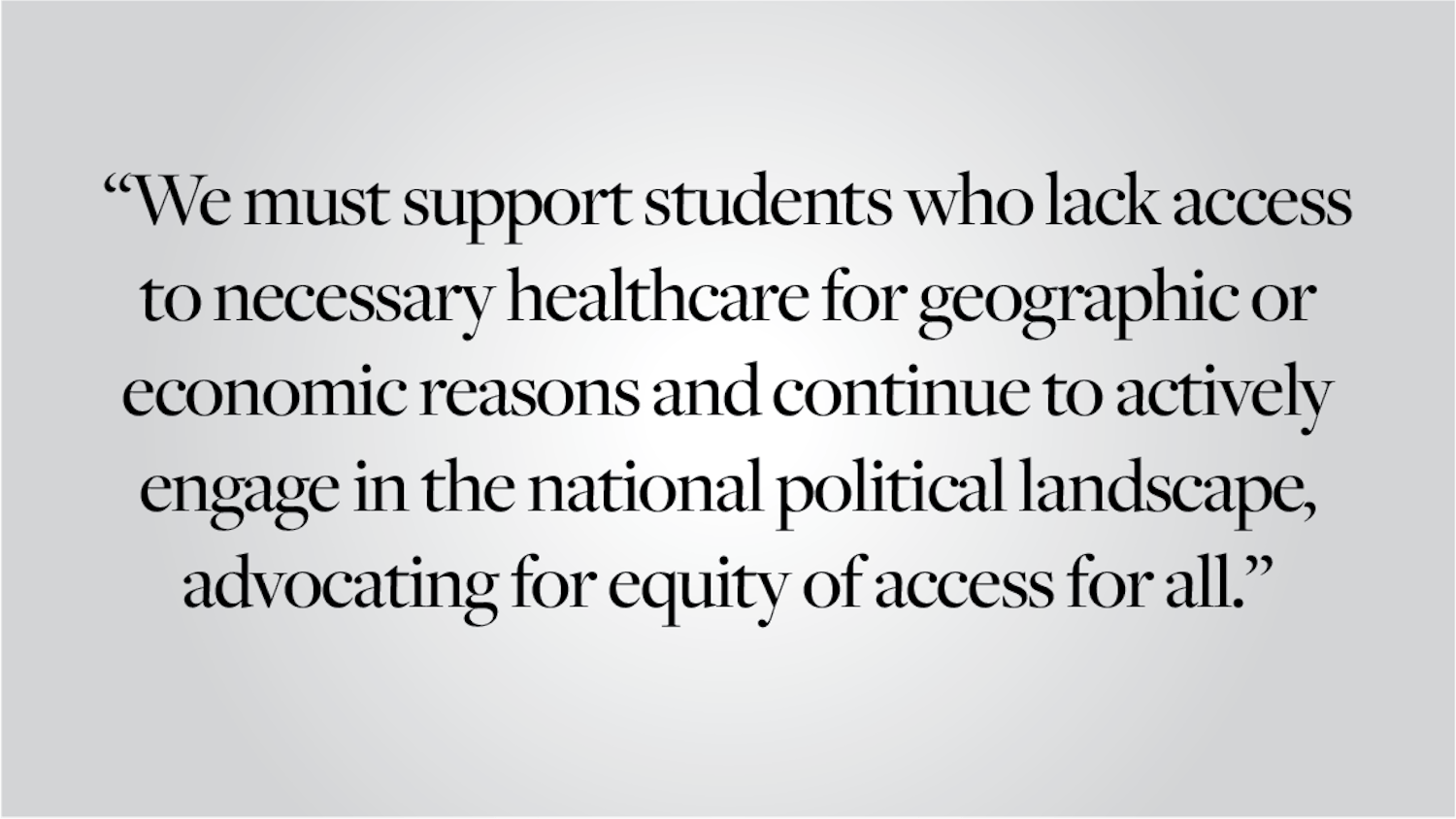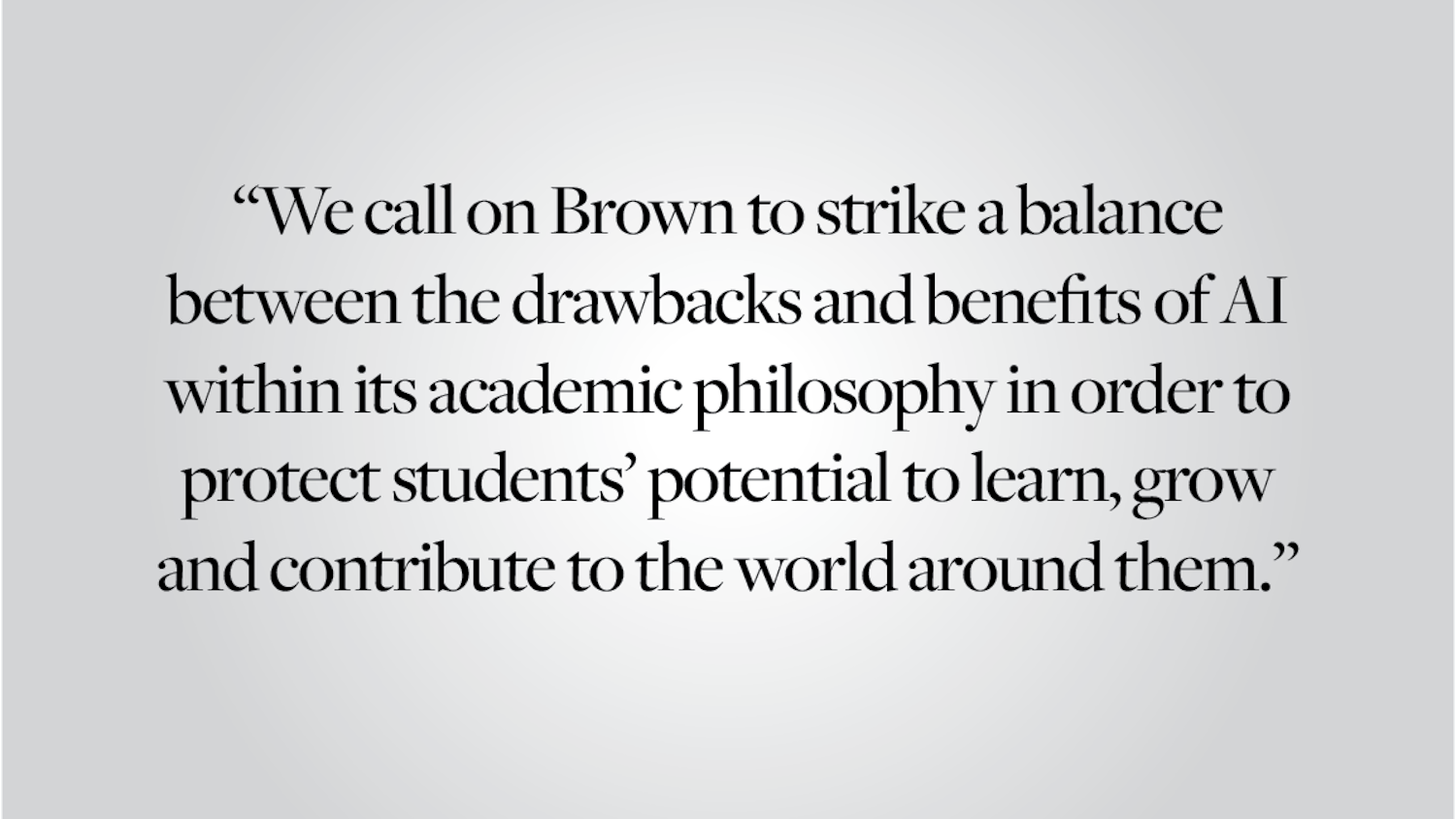Teach for America has long been an attractive option for college graduates who are still deciding, or trying to ease into, their career paths. The nonprofit organization places high-achieving graduates in low-income communities as novice teachers for two years with the ultimate goal of "closing the achievement gap" in education. Though this is an admirable mission, we question the impact of TFA on the education system, and we believe all undergraduates considering a future in education or nonprofits should be fully aware of that impact.
TFA has served as a hub for many graduates from top colleges across the country. In fact, all eight Ivy League institutions rank among the top 20 in contributing corps members. This past year, the 22-year-old nonprofit accepted 57 applicants from Brown, which ranks 10th in number of applicants in the medium-sized schools category (between 3,000-9,999 undergraduates). This statistic begs the question - what motivates so many high-achieving graduates to attend the same program? Do they all share a common love for nurturing young minds?
Ideally, TFA offers an opportunity for eager graduates to experience the public education system without the academic qualifications necessary for teachers. Those uncertified at the beginning of the two-year contract receive an alternative certification through coursework taken during the program, and all corps members attend a mandatory five-week summer institute to prepare for their commitment. But this lack of focus on teaching experience is troubling when we consider the overall mission of TFA. To improve public education across the nation, there should instead be an increase in funding for fully credentialed teachers dedicated to a full career in the classroom. Similar programs commit to longer-term solutions - the New York City Teaching Fellows program offers recruits a subsidized master's degree in education.
This is not to say that all TFA recruits are incapable. It isn't a coincidence that TFA tends to hire more students from top universities, such as Brown. TFA ensures that those committed are, at the very least, intelligent and hard-working. Still, less than 10 percent continue for five years in these public schools. Temporary positions do little to sustain great teachers across the country. Thus, we must question how TFA can serve as a meaningful and substantive asset to improving education, especially in urban public schools.
What does it truly mean to teach for America? Young graduates from top universities like Brown may find it less than ideal to work in the nation's poorest public schools for multiple years. Are they truly teaching for others, or for themselves? In addition, TFA's model of a two-year commitment after a five-week training program can be seen as insulting, implying that suffering schools can universally benefit from teachers without actual teaching experience. Their low retention rate also means that after a two-year commitment, corps members are moving towards careers in other fields. Though this may be ideal for the corps members, it is not ideal for the many public school students whose only chance to find role models is through a committed relationship with their teachers.
We acknowledge that there are graduates who dedicate their lives to education and use TFA to enter the field. We commend those who do so, especially with the recent Chicago school strike bringing the issue of education to the forefront. But before making a two-year commitment to TFA or to any organization dedicated to the greater good, job seekers and soon-to-be graduates need to consider how an organization conducts its operations and pursues its goals. More importantly, however, they need to consider for whom they're committing two years - the students, or themselves.
Editorials are written by The Herald's editorial page board. Send comments to editorials@browndailyherald.com.
ADVERTISEMENT




